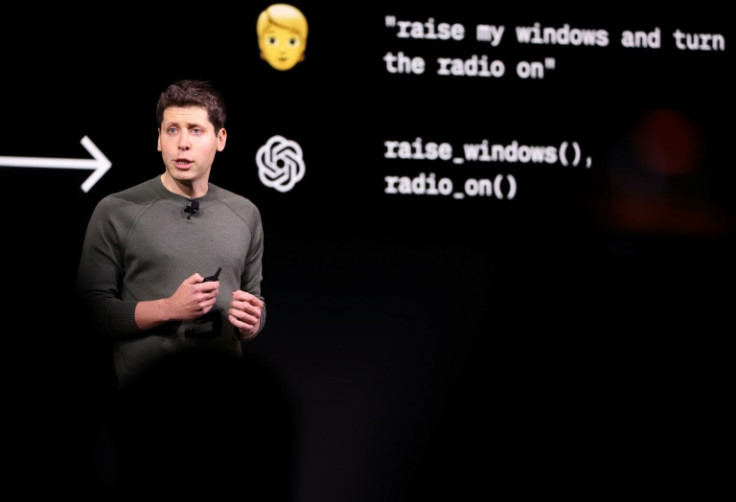OpenAI Announces New GPT Model and Personalised AI Store
The company's first version of the model, ChatGPT, broke records as the fastest-growing consumer app in history months after its launch.

OpenAI has announced a new GPT model and its own personalised AI store. Speaking at the first-ever developer conference for the company, CEO Sam Altman made the announcement to an audience of around 900 tech innovators.
Satya Nadella, CEO of Microsoft, also featured in a surprise cameo during Altman's address.
The new AI model, named GPT-4 Turbo, can analyse more than 300 pages of text in a single prompt and is available at roughly half the price of its previous offering.
"We believe if you give people better tools, they will do amazing things. Eventually, you'll ask a computer for what you need and it will do all these tasks for you," said Sam Altman, chief executive of OpenAI.
Allowing people to build these chatbots without coding makes it more "accessible and gives agency to everyone", Altman said, adding that "gradual iterative deployment" was OpenAI's approach to creating autonomous AI safely.
The company's first version of the model, ChatGPT, broke records as the fastest-growing consumer app in history months after its launch.
The software exploded AI into the mainstream discourse, and now boasts about 100 million weekly active users, OpenAI said yesterday.
More than 92 per cent of Fortune 500 companies use the platform, up from 80 per cent in August, and they span across industries like financial services, legal applications and education, according to the software company.
Altman also debuted a personalised ChatGPT app store, where developers can advertise and monetise their custom bots built with ChatGPT, turning the chatbot interface into a digital platform like iOS or Android.
The Microsoft-backed artificial intelligence company said it planned to launch the online shop in the coming weeks, which will aim to collate the best apps, and eventually split revenues with the most popular GPT creators.
Interestingly, the store's launch comes exactly a year after the public debut of ChatGPT, echoing Apple's decision to launch the iOS App Store a year after the iPhone, which signalled an expansion of its consumer business.
OpenAI's announcements show that one of the hottest companies in tech is rapidly evolving its offerings to stay ahead of rivals like Anthropic, Google and Meta in the AI arms race.
Elon Musk, who quit OpenAI to form his own AI development company, told Rishi Sunak last week that the technology will eventually replace all human jobs.
The pair met to discuss the future of AI at the end of this week's summit in Bletchley Park.
According to Musk, there "will come a point where no job is needed", as the billionaire entrepreneur described artificial intelligence as the "most disruptive force in history" in a wide-ranging conversation.
In his speech on Monday, Altman said the day's announcements came from conversations with developers about their needs over the past year. And when it comes to GPT-5, Altman told reporters: "We want to do it, but we don't have a timeline."
The CEO of OpenAI also addressed the series of copyright claims facing his company, for the alleged use of copyrighted work in training their chatbot.
Household-name authors have filed at least three suits against OpenAI – the plaintiffs include Jonathan Franzen, John Grisham, Michael Chabon, George RR Martin, Jodi Picoult and the Authors Guild, a professional association.
Rather than remove copyrighted material from ChatGPT's training dataset, the chatbot's creator is offering to cover its clients' legal costs for copyright infringement suits.
"We can defend our customers and pay the costs incurred if you face legal claims around copyright infringement and this applies both to ChatGPT Enterprise and the API," Altman said.
The compensation offer, which OpenAI is calling Copyright Shield, applies to users of the business tier, ChatGPT Enterprise, and to developers using ChatGPT's application programming interface. Users of the free version of ChatGPT or ChatGPT+ were not included.
OpenAI is not the first to offer such legal protection – Google, Microsoft and Amazon have made similar offers to users of their generative AI software. Getty Images, Shutterstock and Adobe have extended similar financial liability protection for their image-making software.
OpenAI had previously said in a statement: "We're optimistic we will continue to find mutually beneficial ways to work together to help people utilise new technology in a rich content ecosystem."
© Copyright IBTimes 2024. All rights reserved.






